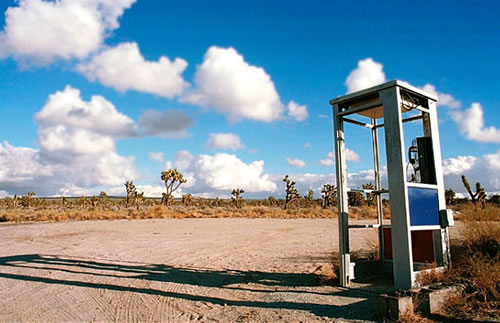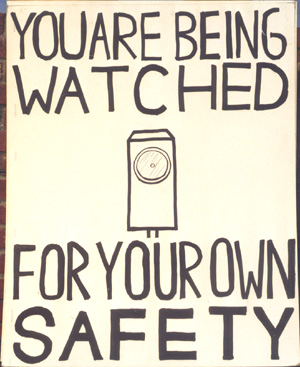How did you get this number?
The Next Web ran a short piece a few days ago about the results from a survey of mobile and smartphone usage in the UK, commissioned by the UK mobile operator O2, that revealed some interesting data about how people are actually using their smartphones. Mojave phone booth
Mojave phone booth
The hook line from the piece, and what is interesting about the data, (taken from a survey of about 2,000 users), is that making actual phones calls, i.e., talking to other people, (or at least attempting to), rated as only the fifth most popular activity for these smartphone users.
According to the 'All About You' survey data, here's where people spend their time on each day with their phones:
Browsing the internet - 25 minutes
Checking Social Networking sites - 17.5 minutes
Listening to music - 15.5 minutes
Playing games - 14.5 minutes
Making actual phone calls (not including conversations with SIRI), - 12 minutes
If you read the rest of the Next Web piece on the survey data, it talks about how the mobile phone has become an indispensable part of modern life, has replaced for many users the need for other 'single-function' gadgets like alarm clocks and watches, and continues to utterly transform the way that we interact with the world, with information, and certainly, each other. And of course that is the kind of positive spin that O2, a mobile phone provider would want to attach to this kind of data.
But the cynical take on this, and perhaps backed up with we see more and more in our professional and personal lives, is that, increasingly, we don't want to actually talk to each other, at least not as often as we want to check LOL Cats, hang out on Facebook, and drop the latest Adele track.
It's not really new news that people do lots of really cool things on their phones, and I suppose it's not really news anymore that actually talking to people has become a much less common and much bigger intrusion on our time that we ever used to think. Sherry Turkle has already covered that ground better than I ever could.
But I guess I'll leave it to you to consider - the little device you are carrying right now lets you connect with the entire world, almost everyone in it, and more information than was ever dreamed would be accessible even just a few years ago.
With that power, potential, and promise, why would you want to spend any time dedicated to talking with just one person?
We love, (especially the professional networkers out there), to say that meeting people, talking to them, interacting one-on-one is the ultimate way to connect, and is necessary to forge true and meaningful relationships. But the data keeps showing what we say we believe and what we actually do continue to diverge.
What do you think? How much less do you actually talk to people since you got your iPhone?
And you can call me to let me know what you think if you like, but I probably won't pick up. Maybe.

 Steve
Steve




